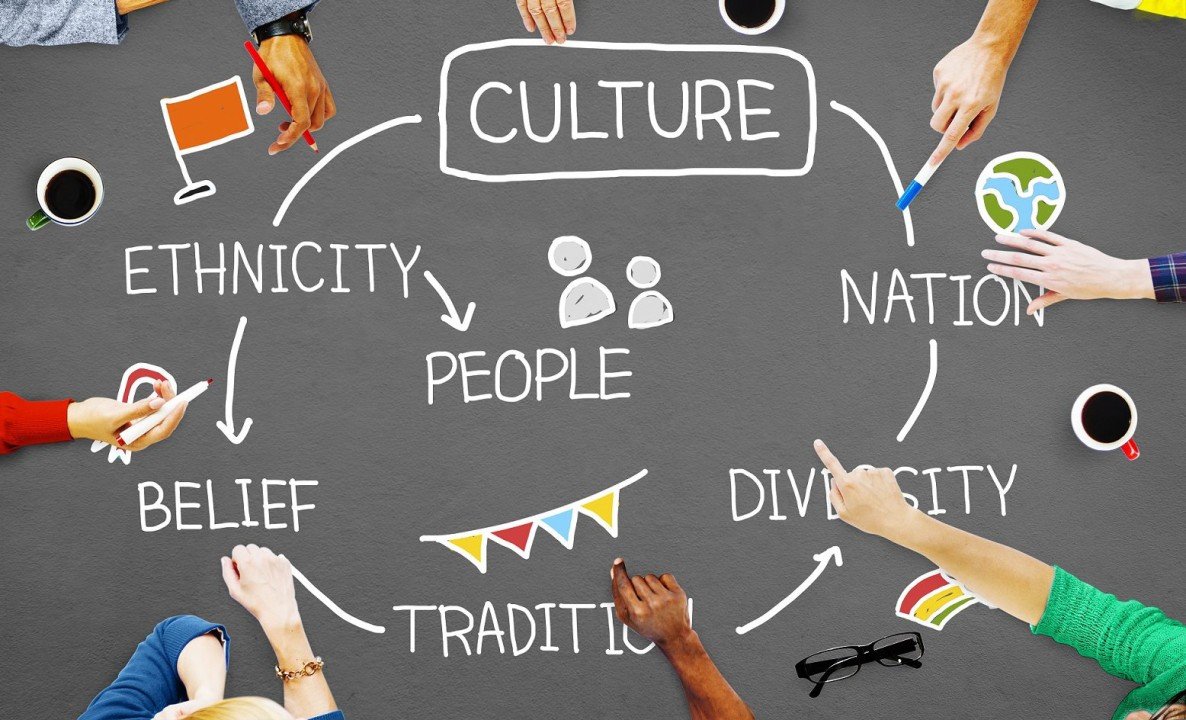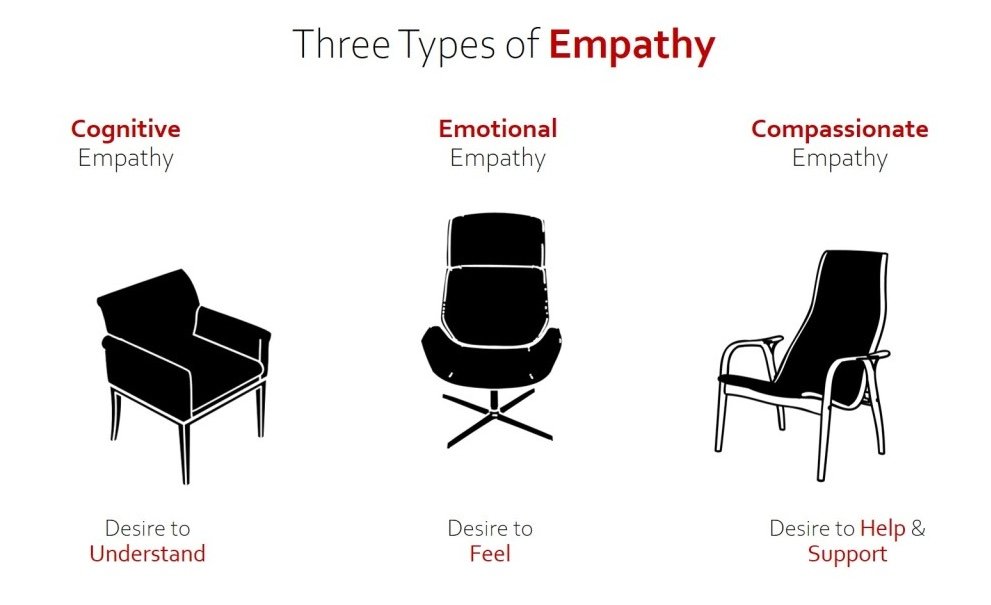Being a curious and authentic person comes with challenges. I have the ability to understand the different beliefs, values, and customs that someone has based on that person's origins. I think it’s impossible to talk about anything from the past based on how we live today. Culture is always moving, therefore, it’s difficult to pass judgement on life was like in another time or region. What we perceive as civilised in one part of the world may be viewed as barbaric in another, and vice versa. This doesn’t make it wrong, it’s just a reflection of their respective cultures and viewpoints. It’s crucial to recognise that neither side is inherently right or wrong – these are simply two different ways of life, as everyone is just trying to solve their challenges in the best way possible.
What's happening in your workplace?
Nowadays, the buzz words on everyone’s lips are “cultural diversity.” The term cultural diversity encourages an environment of inclusion, with representatives from a range of various backgrounds that come together to work as a team. When talking about cultural diversity in the workplace, it is the inclusion of employees from different backgrounds, different races, ethnicity, age, ability, language, nationality, socioeconomic status, gender, religion, or sexual orientation. How is the cultural diversity landscape in your organisation? Contact me here, or via e-mail to arrange a discovery meeting.
Think outside the box
I think embracing diverse perspectives is incredibly impactful for three key reasons:
It allows us to weave a richer and more expansive narrative that resonates with everyone, fostering a sense of belonging and shared purpose.
Rather than pigeonholing individuals into narrow categories based on social or demographic factors, acknowledging their intersectional complexity paints a more accurate and vibrant picture of who we truly are.
Prioritising cognitive diversity not only acknowledges the importance of visible demographic equality as a marker of progress but also underscores its role in driving a genuine evolution toward diverse and innovative ways of thinking.
““We can’t solve problems by using the same kind of thinking we used when we created them.””
If this sounds interesting and you would like to hear more, please contact me here, or via e-mail to arrange a meeting.
Strengthen your resources
Are you ready to embark on a transformative journey and make a positive change in your life?
A coach can help you with everything from career sparring to habit and lifestyle changes, offering invaluable support in various aspects of your personal and professional growth. From refining your career path to positive habits and lifestyle changes, a coach will provide expert advice and unwavering guidance towards your goals. With a coach by your side, the possibilities for positive transformation are endless! Contact me here, or via e-mail to arrange a confidential meeting.
Sharing simple stories
Diversity, Equity and Inclusion (DEI) is on the agenda for every organisation, business, school, government etc., not only because of its business case, but also because it’s the right thing to do. Despite the sudden rise and talk in boardrooms, companies, HR, schools etc., the current DEI landscape still suffers from the lack of global standards in the field, the lack of consensus on how to define and measure success of DEI implementation. The gap between intention and action is growing. Our team of DEI experts understands all of this and are available to help organisations navigate these caveats. Contact me here, or via e-mail to arrange a meeting.
How people think?
In today´s world, most organisations are becoming increasingly global in their operations, attracting talent with diverse backgrounds, skills, and competencies from around the world. To build a seamless and well-functioning team, cultural intelligence is needed to facilitate communication and collaboration. Our mission is to be the preferred consultancy supporting companies bridge cultural differences between and within markets. Would your organisation like to have a better relationship with your business partners or clients from another national or cultural backgrounds? Contact me here, or via e-mail to arrange a meeting.
Three forms of empathy
According to psychologists Daniel Goleman and Paul Ekman empathy manifests in three distinct forms: cognitive, emotional, and compassionate.
1. Cognitive empathy is our ability to understand other people’s points of view.
2. Emotional empathy is our ability to respond physically and emotionally to what someone else is experiencing.
3. Compassionate empathy is what creates the bond between team members within an organisation as well as between companies and countries.
I think you can place concentration as the root of empathy, and the importance of the latter in solving individual, personal and general social challenges.
ChatGPT prompts
Even though I know that using AI to create content is very important, I don’t do it. I think it’s a really good idea to use AI to research your competitors. Here are some tips of questions you could ask ChatGPT:
1) What challenges do they face?
2) What challenges do they fix?
3) Who do they fix it for?
4) What is their competitive edge?
5) And who are their competitors?
Train your brain
We are not our worst thoughts that our brains often take us along by constantly pointing out the things that may go wrong, the anxious negative route which we all recognise is only because our brains are trying to protect us. Ultimately, we are in charge of our brains and unless you suffer from a neurological condition, you can train your brain to do whatever you want it to do. I think you can choose the narrative or spin that you put on any situation, as every life situation is basically neutral, and it’s just the perspective that we attach to it which gives it meaning.
Rules of engagement
The Chatham House Rule is employed globally to promote inclusive and open dialogue in meetings. It's important to note that meetings don't necessarily need to occur at Chatham House or be organised by Chatham House to be conducted under this rule. Any group of individuals in any sector can adopt the Chatham House Rule as a pre-agreed guide for running an event, particularly when discussing sensitive issues. When implemented effectively, the Chatham House Rule facilitates collaboration, breaks down barriers, fosters idea generation, and facilitates agreement on solutions. The Rule reads as follows:
““When a meeting, or part thereof, is held under the Chatham House Rule, participants are free to use the information received, but neither the identity nor the affiliation of the speaker(s), nor that of any other participant, may be revealed.””
We are social animals
I watched this short video of Jeff Bezos talking about high-performing organisations and their need to have a culture that supports truth telling.
It’s probably the best 4 minutes you will see today - enjoy.
““Truths often don’t want to be heard. Important truths can be uncomfortable, awkward, exhausting, challenging. They can make people defensive, even if that’s not the intent. But any high-performing organisation—whether it’s a sports team, a business, a political organisation, or activist group—has to have mechanisms and a culture that supports truth telling.””
Manoeuvring between tribes
Effectively measuring a product or service lies in the realm of how it makes people feel. My ability to connect the dots stems from a wealth of diverse experiences, allowing me to see the connection between seemingly unrelated things. This capacity is rooted in psychology rather than technology. In my experience delving into psychology proves more fruitful than pursuing rational improvements when trying to enhance people's emotional experiences.
““I’ve learned that people will forget what you said, people will forget what you did, but people will never forget how you made them feel.” ”
Changing of the guard
“A single move in the right direction can change your entire life.”
We are not robots, we are human beings with emotions, feelings, and personalities, and sometimes you will clash with people in your workplace. I think it’s OK to say, “I don’t know!” As the illusion of knowledge is more dangerous than ignorance. There’s no shame in that as the only shame is to pretend that we know everything.
A better world
I won the dream and aspiration lottery a long time ago which has allowed me the fortune of pursuing almost everything that I ever wanted to do. My path has not been linear, I want to be a teacher, someone who wants “turns on the lights.” I mean illuminating perspectives that once unseen will forever be in the forefront of our minds. My mission is not to enlighten everyone but rather those willing to embrace new insights. I want to leave a legacy behind which my children and grandchildren would be proud of, and this what makes culture matter.
Managing for the future
If you are a manager or leader at any position in an organisation, here is what Mr. Drucker would want you to practice:
Do what you say and say what you do. When you are a leader, people carefully observe you. People try to derive some meaning from every small gesture of a leader. Make sure that your gestures enable people to derive a positive meaning. Keep your promises and be as authentic as you can.
When you are a leader, you are here to ‘serve’ your people. You serve your people and enable them when ‘leadership’ springs from your heart. But when it gets into your head, that is where problem starts!
Leadership is all about performance. You, as a leader, have to build an integrated team and empower them to deliver great results. Leadership is a means to an end. We don’t lead because we want to, or because of our charisma or because of (a romantic idea of) power that comes with leadership. We lead because we seek results.
An ambiguous leader leads an ambiguous team. Clarity in thoughts, words and actions is one of the most important aspect of leading others. When you lead, people depend on you to give directions to them. If your directions are ambiguous, you will easily mislead them. Clear directions are the ones which clarifies expected outcomes, expected behaviors and establishes priorities, standards. Clarity also means that all decisions/directions are aligned with organization’s mission and values.
Most of what Peter Drucker mentioned in his book, “Managing for the Future” is more of common sense (at least from today’s perspective), and I think practicing them consistently is difficult. Have a fantastic Friday and a happy weekend!
The pursuit of knowledge
Nowadays, we are especially sensitive to signs of trustworthiness in our leaders, and compassion increases our willingness to trust. The smartest people in the world know they don't need to know it all, as highly intelligent people seem to be consistently engaged in the pursuit of knowledge. I think the power of paying attention to our attention is that we become aware that this other stuff is happening that isn’t related to our goal and may actually prevent us from accomplishing our goals.
““The problem is not people being uneducated. The problem is that people are educated just enough to believe what they have been taught, and not educated enough to question anything from what they have been taught.””
All things matter
What must be protected to ensure that people and nature thrive?
Charles Darwin revealed that all species have evolved over time to best exploit the conditions in which they live. Darwin further realised that these conditions are not simply those of geography and climate but also their relationship to other lives that they live alongside. I’ve always believed that few people will protect the natural world if they don’t first love and understand it. I think many sequences revealed in nature are most fascinating and delightful, and others prove that good things do indeed come to those who wait.
Reflecting on our results
The subconscious mind is where all the intellectual information is stored and if you know how to do better than you are doing, why aren’t you doing it? It’s because of our subconscious programming. I think our paradigm controls our behaviours. Just check your results and then look at your behaviour patterns, and then you will realise that you have been programmed to do it this way.
““Confidence is just displayed ability.” ”
Providing solutions
We are in sales because we are motivated by financial success. Selling is more than just transactions, it's a dynamic interaction centred on understanding people's needs, desires, and motivations. In reality, sales involve facilitating a connection between a solution or product and an individual or organisation that would benefit from it. I think to accomplish this, successful salespeople should delve into understanding their clients' perspectives deeply. As at its core, sales is an art form that combines understanding, communication, and persuasion. Contact me via e-mail for sales training and workshops.
Take action
Being a lifelong learner isn’t about taking pride in your knowledge. It's about having the humility to know what you don’t know. I think the most effective employees have excellent self-management skills. Once they know what to do, they will independently navigate the methods for how to do it. All they need is a common goal, and leadership is about creating and articulating a vision that resonates with them, and then building consensus around the common goal.
““Take action!
An inch of movement will bring you closer to your goals than a mile of intention.””




















